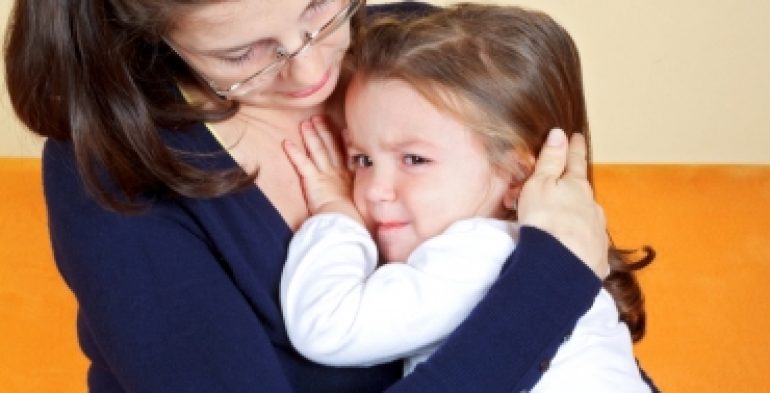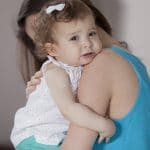
Children go through feelings of separation anxiety for different reasons but essentially they believe that their survival is dependent on having a primary care giver close by and with whom they also have a very strong bond. Toddlers are still too young to understand the concept of time so they cannot be reassured as to when you will return in a way that is meaningful for them. Separation anxiety usually heightens between 8 and 18 months, and there can be regressions at times of change to routine such as vacation or stress such as a change in day-care or a house move.
Signs of separation anxiety
Indications of separation anxiety are usually at the time the parent leaves or shortly afterwards. The child may cry, throw a tantrum or resist other care-givers in an attempt to convince the parent not to leave or tor quickly return. A child may also show signs of fear or agitation when a parent is in another room or when they are left alone at bedtime. This anxiety is perfectly natural and serves to keep the child close to the care-giver who is their sources of love, nourishment and safety.
How you can ease separation anxiety
- Always wave goodbye and say goodbye properly. It can seem tempting to disappear quietly and avoid the tears and tantrums but this will lead to further separation anxiety as your child will not want to let you out of their sight. Clearly tell your child that you love them and that you will return.
- Offer a favourite soft toy to sooth and comfort in your absence.
- Tell your child who will be looking after them and speak positively about the care-giver.
- Don’t be tempted to put your child to bed before the care-giver arrives to avoid the tears, this will work but only as long as your child does not wake up and then be frightened to find you gone and someone else there.
- Build up gradually with increasing periods of time apart is kindest on both you and your baby.
- Engage your child in a fun activity with their care-giver before you leave.
- Heading out at the same time if in the daytime can be very effective. As you leave, your child’s care-giver also leaves and takes your child to the park or shops, so you are not leaving them behind in the same way.
- Be decisive on leaving and be calm and firm, do not display any anxiety of your own or hesitate which can escalate the situation.
- It is never nice to see your child distressed but understand that your child’s anxiety is a perfectly natural and healthy progression which he or she will grow out of, and which you can alleviate in many ways along the journey to more independence.
When should you worry about separation anxiety?
Separation anxiety can be affected by many things, illness, family upset, move of home or school and so on which can intensify anxiety or set back your child. If your toddler is showing excessive signs of anxiety such as vomiting or unrelenting worry, then contact your paediatrician.








